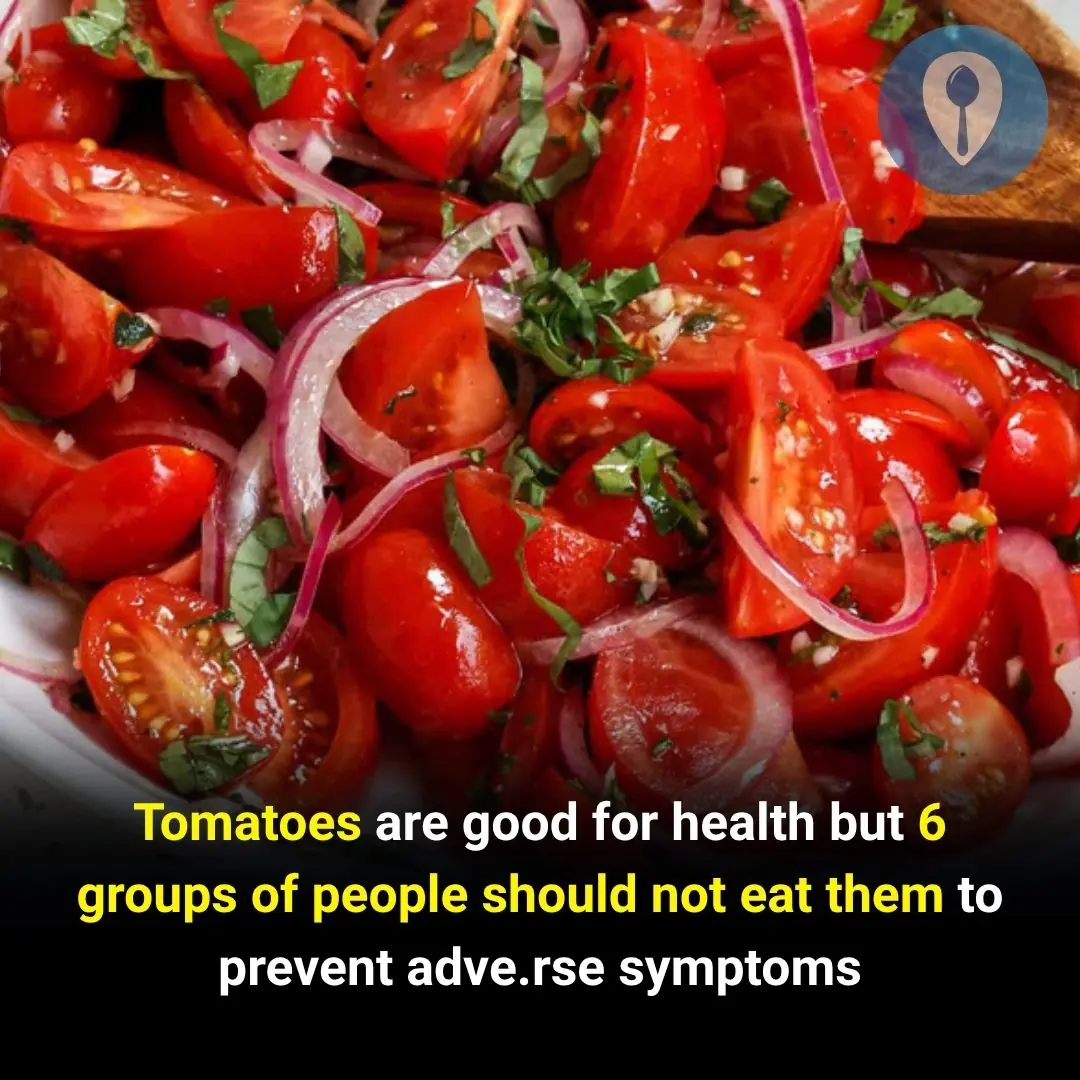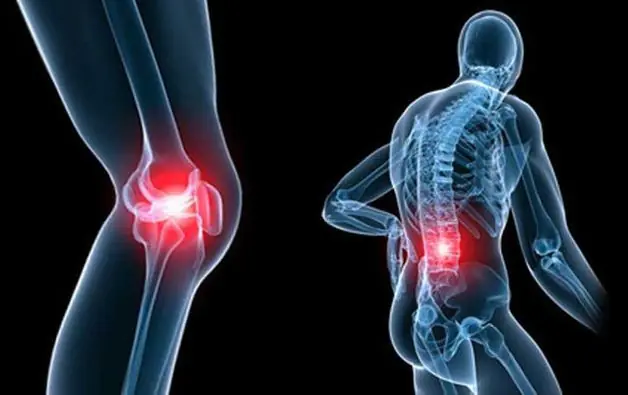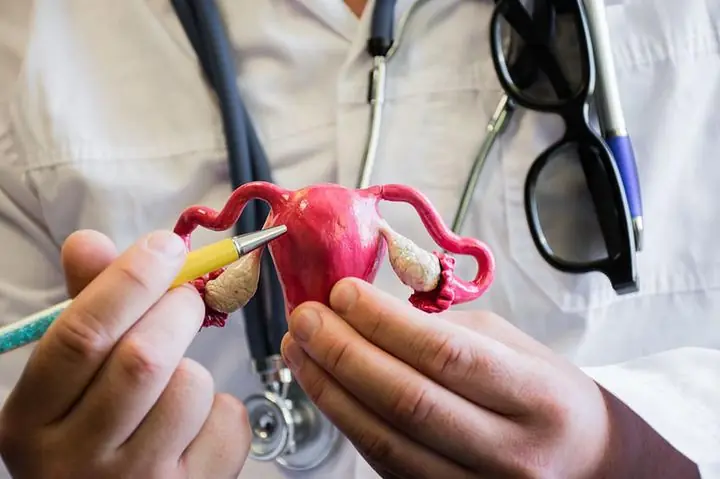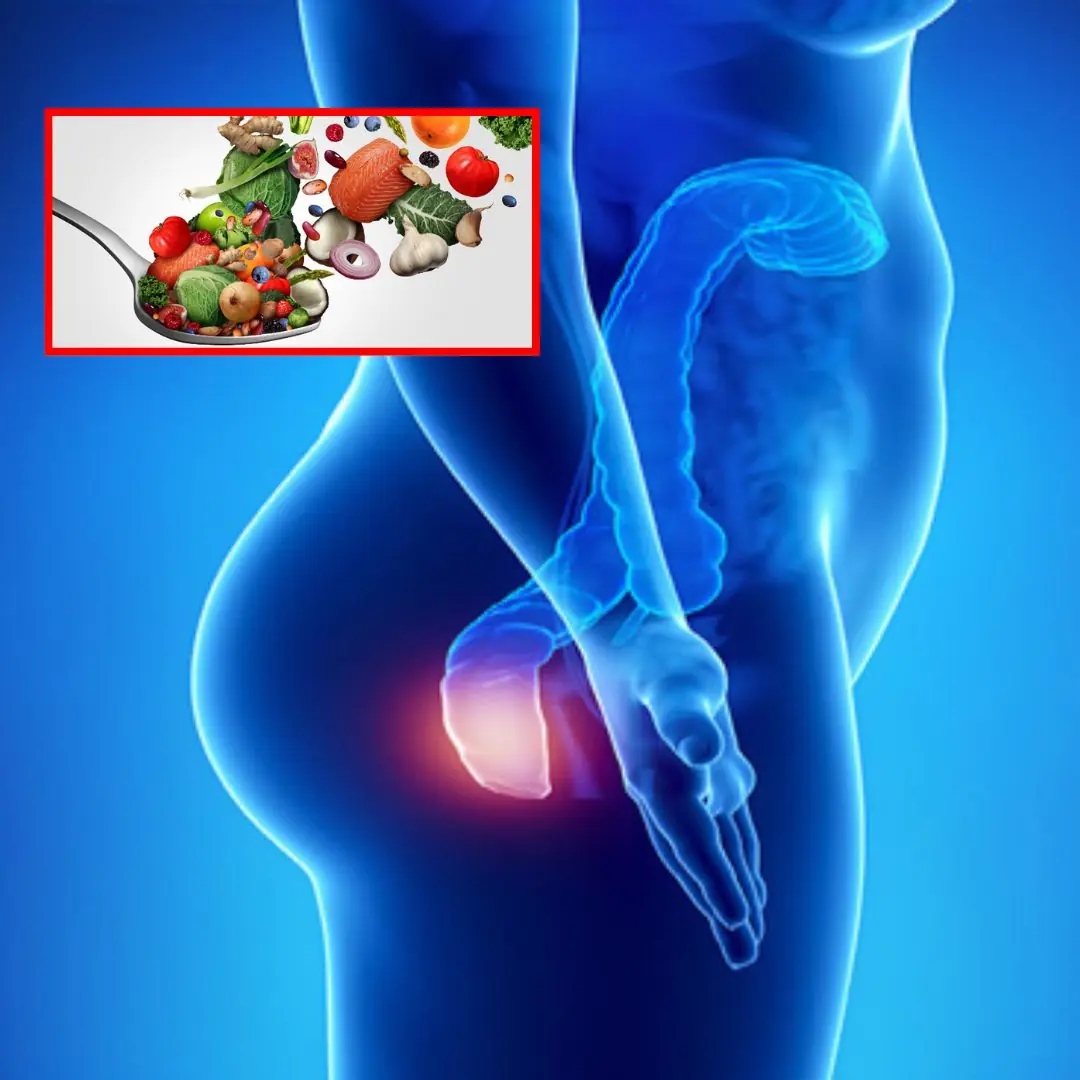
Tomatoes are good for health but 6 groups of people should not eat them to prevent adverse symptoms

Tomatoes Are Healthy, But These 6 Groups Should Avoid Them
Tomatoes are colorful, delicious, and packed with essential nutrients. Often celebrated as a “superfood,” tomatoes are used in countless dishes—from salads and sauces to juices and stir-fries. They’re rich in vitamin C, potassium, antioxidants like lycopene, and various other nutrients that promote heart health, improve skin, and fight inflammation.
However, despite their health benefits, not everyone should include tomatoes in their diet without caution. For certain individuals, eating tomatoes may lead to unpleasant or even harmful health effects. Here are six groups of people who should consider avoiding or limiting their tomato intake to prevent adverse symptoms.
1. People with Acid Reflux or GERD
Tomatoes are naturally acidic, containing high levels of citric acid and malic acid. These compounds can stimulate the stomach to produce more gastric acid. For people suffering from acid reflux or gastroesophageal reflux disease (GERD), this can aggravate symptoms like heartburn, chest discomfort, or regurgitation.
Even cooked tomatoes—like those in pasta sauces or soups—can trigger these symptoms. If you’re prone to acid reflux, it's wise to monitor your body's reaction to tomatoes and consult with a healthcare provider for personalized dietary guidance.
2. People with Irritable Bowel Syndrome (IBS)
IBS is a chronic gastrointestinal disorder that causes symptoms like bloating, gas, diarrhea, and abdominal cramps. People with IBS often have sensitivities to certain foods, particularly those that are high in fiber or certain sugars.
Tomatoes, especially their skins and seeds, can irritate the gut lining and worsen IBS symptoms. Some people also experience allergic-like reactions or digestive discomfort after eating large quantities of tomatoes. If you suffer from IBS, consider tracking your symptoms and reducing or avoiding tomato-based foods as necessary.
3. People with Histamine Intolerance
Histamine intolerance occurs when the body is unable to break down histamine efficiently, often due to a deficiency of the enzyme diamine oxidase (DAO). Since tomatoes are considered a high-histamine food, consuming them can cause unpleasant symptoms such as:
-
Headaches
-
Skin rashes or hives
-
Nasal congestion
-
Digestive issues
If you’ve experienced these reactions and suspect histamine intolerance, speak with a medical professional. Avoiding tomatoes may help alleviate symptoms significantly.
4. People with Kidney Disease or Prone to Kidney Stones
Tomatoes are high in potassium, which is essential for healthy nerve and muscle function. However, for individuals with chronic kidney disease, excess potassium can lead to hyperkalemia—a potentially life-threatening condition that affects heart rhythm.
In addition, tomato sauces and processed tomato products are rich in oxalates, compounds that can contribute to kidney stone formation, particularly in those already at risk. People with kidney issues or a history of stones should limit tomato intake or avoid it entirely, depending on medical advice.
5. People with Tomato Allergies or Sensitivities
Although relatively rare, some people are allergic or sensitive to tomatoes. Allergic reactions can range from mild to severe and may include:
-
Skin itching, hives, or eczema
-
Sneezing, coughing, or runny nose
-
Swelling of the lips, tongue, or throat
-
Nausea or stomach upset
In some cases, touching raw tomatoes can also cause allergic contact dermatitis, resulting in itchy, swollen, or inflamed skin. If you experience any of these symptoms, it's best to get tested and avoid tomato exposure altogether.
6. People with Gout
Gout is a type of arthritis caused by high levels of uric acid in the blood. This acid forms crystals in the joints, leading to sudden and intense pain. Tomatoes contain purines—organic compounds that break down into uric acid. Additionally, the vitamin C in tomatoes can react with uric acid in a way that triggers crystallization, worsening gout attacks.
While the purine content in tomatoes is moderate compared to meats or alcohol, even small amounts can trigger symptoms in sensitive individuals. People living with gout should consult a doctor before adding tomatoes back into their diet.
Healthy Alternatives to Tomatoes
If you fall into one of the categories above, don’t worry—there are several delicious and nutritious substitutes for tomatoes that offer similar taste and color:
-
Red bell peppers – Sweet and rich in vitamin C, perfect for salads or cooking
-
Ripe tamarind or lemon juice – A tangy alternative for soups and sauces
-
Pumpkin or butternut squash – For a sweeter, creamy texture in stews
-
Carrots and beets – Naturally sweet with a vibrant hue
These ingredients can often mimic the role of tomatoes in cooking while being easier on your system.
Conclusion
Tomatoes are undeniably healthy for most people, offering powerful antioxidants, vitamins, and minerals. However, they can pose health risks for individuals with acid reflux, IBS, histamine intolerance, kidney problems, allergies, or gout.
As always, listen to your body. If tomatoes make you feel unwell, don’t ignore the symptoms. Consult a healthcare professional for personalized advice and explore alternative foods that nourish you without causing harm.
Remember: “Healthy food” isn’t one-size-fits-all—what works for many may not work for you.
News in the same category


Man develops 'pork worms' in his br.ai.n after years doing this specific cooking habit

Diabetes can 'show' strange signs in the neck: If you see them, don't ignore them

3 Drinks Called the “Calcium Drainers” But Many People Still Love

4 Surprisingly “Clean” Vegetables with Minimal Pesticides

6 Golden Habits to Help Seniors Reduce the Risk of Cerebral Infarction

Want the Health Perks of Coffee? Here’s the Best Time to Drink It

6 things you should absolutely not do when you have neck and shoulder pain because they destroy bones and joints and are terrible for your stomach

Headache for 5 days, woman suddenly fell to the ground, co.nvulsed, had difficulty speaking

Summer or winter, Japanese people wear socks to sleep — here’s why!

Spot these 10 symptoms? It’s time to see a doctor without delay!

4 Types of Pimples That Could Be a “Disguise” for Can.cer

5 Foods That Become Harmful When Reheated

Women Who Regularly Eat These 4 Dishes Won’t Have to Worry About a Cold Uterus

7 Types of Fish High in Mercury: Limit Them No Matter How Much You Like Them

15 Foods That Are Good for People with Hemorrhoids

The Worst Foods for Worm Contamination You Should Know About

Leg Veins Turning Purple? Here’s What You Need to Know

Revealing 6 Obvious Can.cer Warning Signs You Can Spot Just by Looking in the Mirror!

Women on the Verge of “Estrogen Depletion” Often Show 5 Alarming Signs
News Post

Not milk or dried shrimp – this is the real “Calcium King” that many people overlook

Man develops 'pork worms' in his br.ai.n after years doing this specific cooking habit

Diabetes can 'show' strange signs in the neck: If you see them, don't ignore them

3 Drinks Called the “Calcium Drainers” But Many People Still Love

4 Surprisingly “Clean” Vegetables with Minimal Pesticides

3 Lucky Plants That Bring Prosperity and Wealth

6 Golden Habits to Help Seniors Reduce the Risk of Cerebral Infarction

One Part of Chicken Contains Four Times More Cholesterol Than Pork Fat

Sweet Potatoes Are Not Good for These 3 Groups of People

Just hang a handful of these leaves in front of your door - flies and mosquitoes will disappear

Want the Health Perks of Coffee? Here’s the Best Time to Drink It

Taylor Swift and Travis Kelce announce engagemen

Washing Machines Have a Special Mode That Dries Clothes Faster

Flight attendant explains why cabin crew members always sit on their hands during takeoff

6 things you should absolutely not do when you have neck and shoulder pain because they destroy bones and joints and are terrible for your stomach

8 types of plants that attract snakes into the house

Mixing fabric softener with salt: Great use to solve household problems

Headache for 5 days, woman suddenly fell to the ground, co.nvulsed, had difficulty speaking

Summer or winter, Japanese people wear socks to sleep — here’s why!
